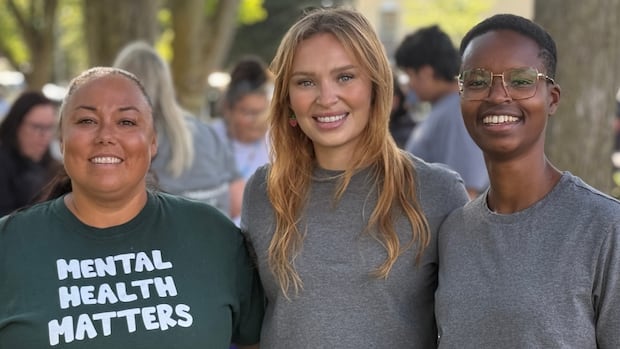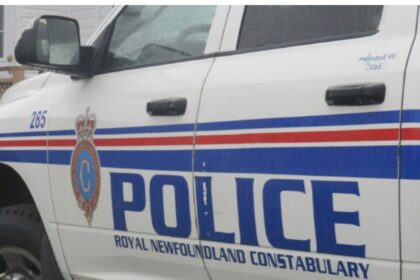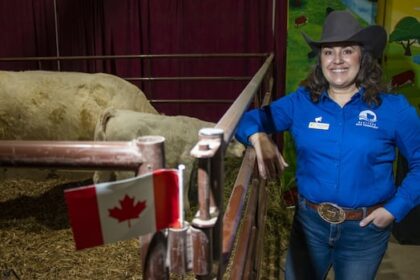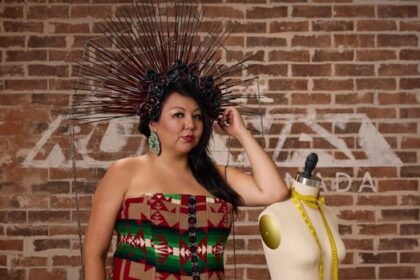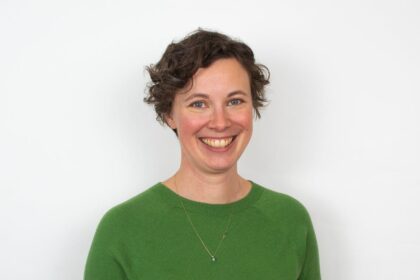IndigenousSix Nations and surrounding community organizations gathered Wednesday to mark International Overdose Awareness Day.’It’s really important to honour the lives of those who have died from a drug overdose,’ says organizerCandace Maracle · CBC News · Posted: Aug 29, 2025 1:23 PM EDT | Last Updated: 2 hours agoArli Harrison, Brittany Keesmaat and Eve Kahama are outreach workers with the Department of Well-Being at Six Nations of the Grand River. (Candace Maracle/CBC)Six Nations of the Grand River, near Hamilton, marked International Overdose Awareness Day on Wednesday with an event to raise awareness and share information about prevention, treatment and recovery available in the community. Brittany Keesmaat, who is Cayuga from Six Nations, is an outreach worker at the Department of Well-Being and organized the event at Veterans Park. She said it was about honouring people wherever they were on their journey.”It’s really important to honour the lives of those who have died from a drug overdose,” said Keesmaat. “It’s also to support people who are still using substances and show that we value those in recovery as well.”She said families who lose someone to an overdose often feel stigmatized in their grief and that lives deserve to be respected and honoured, regardless of how someone died.Keesmaat said healing is not a linear path, so it’s important for people in recovery to understand the organizations on-hand were committed to helping people at every step of their journey.The event had a memorial plaque where people could write the names of loved ones lost to overdose. (Candace Maracle/CBC)A 2023 report by the Chiefs of Ontario and the Ontario Drug Policy Research Network said that the rate of opioid-related deaths began increasing in 2016, driven by the introduction of fentanyl to the unregulated drug supply, and that between 2019 and 2021, the annual rate of opioid-related deaths among First Nations people nearly tripled. The report said that in 2021, the rate of opioid-related deaths was more than seven times higher among First Nations (11.4 deaths per 10,000 people) compared to non-First Nations people (1.6 per 10,000 people).Finding support in communityIn addition to live music and speakers, the event had on-site crisis support counsellors and a memorial plaque where people could write the name of a loved one they lost to an overdose.Speakers shared their lived experiences in addiction and recovery. Cassandra Jamieson, who has been sober for seven years, eight months, 18 days, eight hours, and 33 minutes according to an app she uses, said she attributed much of her success to the programs and services represented at the day’s event.Cassandra Jamieson has been sober for seven years and speaks regularly on the topic. (Candace Maracle/CBC)She said she speaks regularly about her story and hopes it will inspire someone who might be struggling with addiction themselves to get the help they need, dedicating her message to her aunt and uncle who both died last year due to overdose. “You have to know within yourself and your own healing with your own addiction to be able to crawl out of that stigma,” she said. Harv Powless said he’s lost many family and friends to overdoses over the years and was there to share his support.”I used to look like addiction as a choice but now I do see it as a disease because it might have been a choice at one time, but then it is hard for addicts to get out of that life, especially if they don’t have the help or the support that they need,” Powless said.Harv Powless, left, has lost many family and friends to overdoses and was at the awareness event to share his support. Waylon Lewis, right, was an event speaker sharing his healing journey to sobriety. (Candace Maracle/CBC)Jace Martin, a musician from Six Nations, said he felt it was important to use his platform to support the event. He said addiction can feel isolating for some families and that he has learned that one of the most important factors is seeking community. “We find a lot of shame in our families when people are dealing with addictions, overdose and things of that nature,” Martin said. “We don’t need to be ashamed because it’s a part of life and it affects every family. Not just us.” ABOUT THE AUTHORCandace Maracle is Wolf Clan from Tyendinaga Mohawk Territory. She has a master’s degree in journalism from Toronto Metropolitan University. She is a laureate of The Hnatyshyn Foundation REVEAL Indigenous Art Award. Her latest short film, “Tsi ní:yoht yonkwayentá:’on ne óhses” (How We Got Maple Syrup) is completely in the Kanien’kéha language.
Friday, 6 Feb 2026
Canada – The Illusion
Search
Have an existing account?
Sign In
© 2022 Foxiz News Network. Ruby Design Company. All Rights Reserved.
You May also Like
- More News:
- history
- Standing Bear Network
- John Gonzalez
- ᐊᔭᐦᑊ ayahp — It happened
- Creation
- Beneath the Water
- Olympic gold medal
- Jim Thorpe
- type O blood
- the bringer of life
- Raven
- Wás’agi
- NoiseCat
- 'Sugarcane'
- The rivers still sing
- ᑲᓂᐸᐏᐟ ᒪᐢᑿ
- ᐅᑳᐤ okâw — We remember
- ᐊᓂᓈᐯᐃᐧᐣ aninâpêwin — Truth
- This is what it means to be human.
- Nokoma


